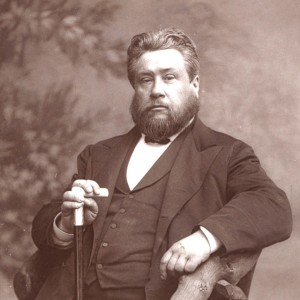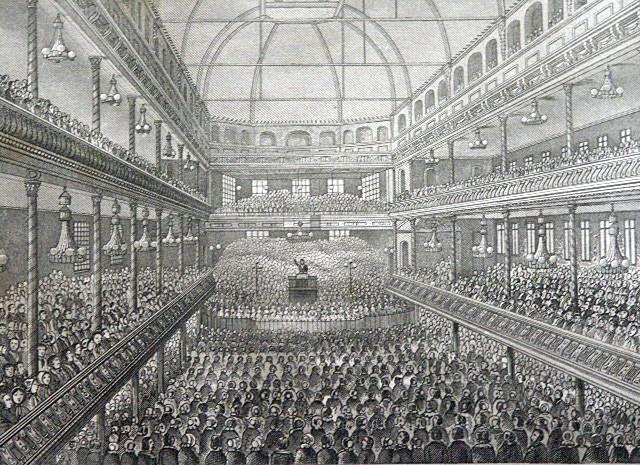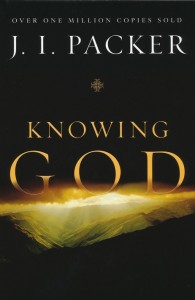
Some might be surprised to hear Spurgeon, the Prince of Preachers, say he would rather give up preaching the sermon than give up his role in another element of worship. What is that element? Public prayer.
In his lecture on public prayer Spurgeon said, “I am not able to see any reason for depriving me of the holiest, sweetest, and most profitable exercise which my Lord has allotted me; if I have my choice, I will sooner yield up the sermon than the prayer.”
 Few documents in church history extol the house such remarkable affection for and counsel on public prayer as this lecture. I have said before that I find public prayer the most daunting, and glorious, privilege of pastoral ministry. To stand in the congregation’s stead and plead with the Lord Most High ought to cause a shiver go up many a pastor’s spine. It sure does for me. So it is no coincidence that I find myself almost monthly gravitating to Spurgeon’s thoughts on public prayer. With characteristic wit and conviction he humbles the heart of every man called to this ministry. But he also inspires the soul.
Few documents in church history extol the house such remarkable affection for and counsel on public prayer as this lecture. I have said before that I find public prayer the most daunting, and glorious, privilege of pastoral ministry. To stand in the congregation’s stead and plead with the Lord Most High ought to cause a shiver go up many a pastor’s spine. It sure does for me. So it is no coincidence that I find myself almost monthly gravitating to Spurgeon’s thoughts on public prayer. With characteristic wit and conviction he humbles the heart of every man called to this ministry. But he also inspires the soul.
Let me whet your appetite for this fine feast of a lecture by giving you Spurgeon’s six canons, or rule, to “make our public prayer what it should be.”
7 CANONS OF PUBLIC PRAYER
First, public prayer should be a matter of the heart. A man must be really earnest in prayer. You can pardon a man’s familiarities and vulgarities too, when you clearly see that his inmost heart is speaking to his Master, and that it is only the man’s defects of education or experience which create his faults, and not any moral or spiritual vices of his heart. Cast your whole soul into the exercise of public prayer. So pray, that by a divine attraction, you draw the whole congregation up with you to the throne of God. So pray, that by the power of the Spirit, you express the desires and thoughts of every one present, and stand as the one voice for hundreds of beating hearts which are glowing with fervor before God’s throne.
Second, public prayer should be appropriate. There is no need to make the public prayer a gazette of the week’s events, or a register of the births, deaths, and marriage of your people, but the general movements that have taken place in the congregation should be noted by the minister’s careful heart. He should bring the joys and sorrows alike before the throne of grace.
Third, public prayer should not be long. John Macdonald said, “If you are in the spirit of prayer, do not be long, because other people will not be able to keep pace with you in such unusual spirituality; and if you are not in the spirit of prayer, do not be long, because you will then be sure to weary the listeners.” Ten minutes is the limit to which our public prayer ought to be prolonged.
Fourth, do not use cant phrases. Be done with these vile things altogether. There should be no grotesque mingling of Scripture texts, alterations of Scripture texts, or abuses of Scriptural truth in prayer. It ought always to be a point of honor among ministers always to quote Scripture directly. Make us of an expression fresh from your own mind, and it will be quite as acceptable to God as a scriptural phrase defaced or clipped. Vehemently strive against garblings and perversions of Scripture, and renounce forever all cant phrases, for the are the disfigurement of free prayer.
Five, vary the order, length, and current of your public prayers. Vary the order of your prayers, then, for the sake of maintaining attention, and preventing people going through the whole thing as a clock runs on till the weights are down. Also vary the length of your prayers. Do you not think it would be much better if sometimes instead of giving three minutes to the first prayer and fifteen minutes to the second, you have nine minutes to each? Would it not be better sometimes to be longer in the first, and not so long in the second prayer? Finally, vary the current of your prayers. There are many topics which require your attention; the church in its weakness, its backslidings, its sorrows, and its comforts; the outside world, the neighborhood, unconverted hearers, the young people, the nation. Do not pray for all these every time, or otherwise your prayers will be long and probably uninteresting.
Six, keep from all attempts to work up spurious fervor in public devotion. Do not labor to seem earnest. Pray as your heart dictates, under the leading of the Spirit of God, and if you are dull and heavy tell the Lord so. It will be no ill thing to confess your deadness, and bewail it, and cry for quickening; it will be real and acceptable prayer; but simulated ardor is a shameful form of lying.
Seventh, prepare your prayer. Proper preparation means solemn consideration beforehand of the importance of prayer, meditation upon the needs of men’s souls, and a remembrance of the promises which we are to plead; and thus coming before the Lord with a petition written upon the fleshly tables of the heart. This is surely better than coming to God at random, rushing before the throne at haphazard, without a definite error or desire.
If we wanted to summarize the canons with adverbs we could say, “Spurgeon exhorts pastors to pray soulfully, appropriately, quickly, authentically, variously, and prepared-ly.”
Spugeon’s conclusion of the lecture is a most fitting place for this post to end:
Let your prayers be earnest, full of fire, vehemence, prevalence. I pray the Holy Ghost to instruct every student of this College so to offer public prayer, that God shall always be served of his best. Let your petitions be plain and heart-felt; and while your people may sometimes feel that the sermon was below the mark, may they also feel that the prayer compensated for all.





